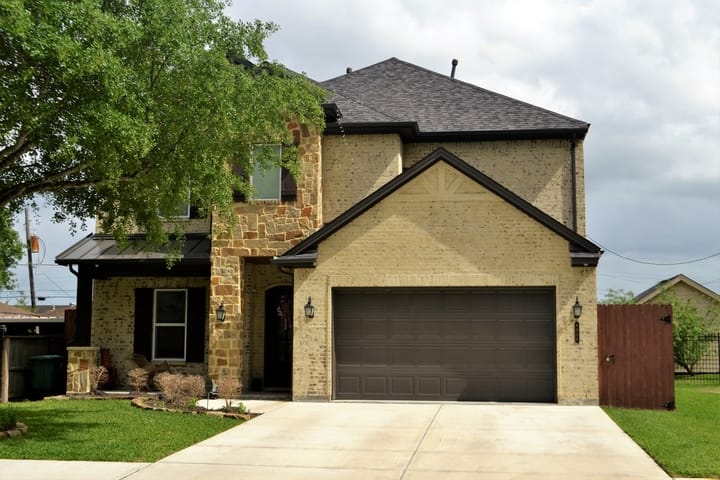Your overhead garage door weighs hundreds of pounds. It makes sense that various components of the system would wear down or suffer damage as the years go by. The door’s springs are responsible for offsetting the weight of your garage door so it can consistently open and close smoothly and with ease. To protect not just you garage door but also your family’s personal safety, it is very important to ensure a damaged spring is repaired or replaced immediately. If your garage door hasn’t been functioning properly, use our checklist to decide if a broken spring may be causing the issue.
Your garage door is bent.
If it is, your springs could be damaged. When springs break, they can’t properly assist in opening and closing the door, which eventually causes serious damage if the door continues to be used. If you notice that the top of the door is bent, dented, or damaged in any way, stop operating the system until a technician can come and repair the problem.
You heard a loud noise when closing the garage door.
What you heard was likely your garage door springs snapping from the amount of pressure they are under. This is a definite indication that the springs need to be replaced immediately.
One side of your garage door is higher than the other.
This is most likely because your garage door has two springs and one of them is worn down or completely broken. Now, the remaining “healthy” spring is doing the work of two, and not very well. The strain of doing twice the work will eventually cause the remaining spring to break, too, so be sure to address the problem as soon as possible.
Related Article: Garage Door Springs vs. Cables
The door doesn’t open all the way or isn’t operating at all.
If your garage door springs are too worn or damaged, your system’s sensors may be preventing it from opening and closing at all in order to protect the rest of the system’s parts and prevent injury. The sensors activate when the garage door opener is under too much pressure, which happens when your springs are too damaged to do their job properly.
The door falls faster than normal.
If your garage door has a damaged or broken spring, it can cause the door to fall faster when you close it. This is because the opener and undamaged spring (if there is one) are left to carry more of the weight of the door, which they are not designed to do.
You rely on your garage door every day. Ensure it remains in the best possible condition by fixing problems as they arise. Be aware, however, that because of the weight of the door and the incredible amount of tension garage door springs are under, you should never try to replace them yourself. Call your local garage repair company and set up a time for a qualified technician to inspect your system to ensure it functions properly.
Related Article: Should I Repair My Own Garage Door?
WD Door in Ankeny provides 24/7 service to the Greater Des Moines area and much of the state of Iowa. Subscribe to our blog today for more information on common garage door problems and how to fix them.

